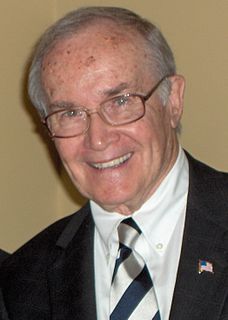A Quote by Sophie Swetchine
God has prohibited despair.
Quote Topics
Related Quotes
Sin is: before God, or with the conception of God, in despair not to will to be oneself, or in despair to will to be oneself. Thus sin is intensified weakness or intensified defiance: sin is the intensification of despair. The emphasis is on before God, or with a conception of God; it is the conception of God that makes sin dialectically, ethically, and religiously what lawyers call 'aggravated' despair.
Compared with the person who is conscious of his despair, the despairing individual who is ignorant of his despair is simply a negativity further away from the truth and deliverance. . . . Yet ignorance is so far from breaking the despair or changing despair to nondespairing that it can in fact be the most dangerous form of despair. . . . An individual is furthest from being conscious of himself as spirit when he is ignorant of being in despair. But precisely this-not to be conscious of oneself as spirit-is despair, which is spiritlessness. . . .
An individual in despair despairs over something. . . . In despairing over something, he really despair[s] over himself, and now he wants to get rid of himself. Consequently, to despair over something is still not despair proper. . . . To despair over oneself, in despair to will to be rid of oneself-this is the formula for all despair.
In Germany, under the law, everything is prohibited, except that which is permitted. In France, under the law, everything is permitted, except that which is prohibited. In the Soviet Union, under the law, everything is prohibited, including that which is permitted. And in Italy, under the law, everything is permitted, especially that which is prohibited.
It's despair at the lack of feeling, of love, of reason in the world. It's despair that anyone can even contemplate the idea of dropping a bomb or ordering that it should be dropped. It's despair that so few of us care. It's despair that there's so much brutality and callousness in the world. It's despair that perfectly normal young men can be made vicious and evil because they've won a lot of money. And then do what you've done to me.
Only the man who has had to face despair is really convinced that he needs mercy. Those who do not want mercy never seek it. It is better to find God on the threshold of despair than to risk our lives in a complacency that has never felt the need of forgiveness. A life that is without problems may literally be more hopeless than one that always verges on despair.
The ever increasing intensity of despair depends upon the degree of consciousness or is proportionate to this increase: the greater the degree of consciousness, the more intensive the despair. This is everywhere apparent, most clearly in despair at its maximum and minimum. The devil's despair is the most intensive despair, for the devil is sheer spirit and hence unqualified consciousness and transparency; there is no obscurity in the devil that could serve as a mitigating excuse. Therefore, his despair is the most absolute defiance. . . .
What is courage? This courage will not be the opposite of despair. We shall often be faced with despair, as indeed every sensitive person has been during the last several decades in this country. Hence Kierkegaard and Nietzsche and Camus and Sartre have proclaimed that courage is not the absence of despair; it is, rather, the capacity to move ahead in spite of despair.
The man who knows God but does not know his own misery, becomes proud. The man who knows his own misery but does not know God, ends in despair...the knowledge of Jesus Christ constitutes the middle course because in him we find both God and our own misery. Jesus Christ is therefore a God whom we approach without pride, and before whom we humble ourselves without despair.
Of Love--may God exalt you! -the first part is jesting, and the last part is right earnestness. So majestic are its diverse aspects, they are too subtle to be described; their reality can only be apprehended by personal experience. Love is neither disapproved by Religion, nor prohibited by the Law; for every heart is in God's hands.
































